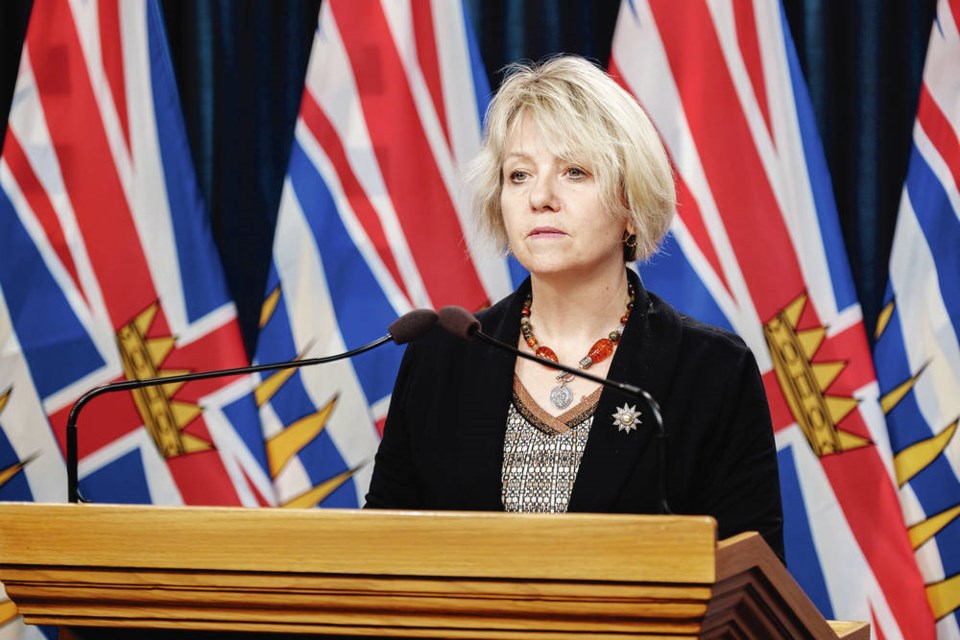Vancouver Island’s steady daily new-case count amid explosive new numbers of COVID-19 cases in the Lower Mainland means we’re at a critical point, says a University of B.C. epidemiologist.
Daniel Coombs, who uses mathematical modelling to project how the virus will grow, said Islanders could be at greater risk if they don’t stay vigilant. “It wouldn’t take very much for a spark, as it were, coming from the Lower Mainland, to sort of ignite a little fire on Vancouver Island,” he said.
“If people relax their behaviour a bit, then things will go up, and if they reduce their contacts, things will go down.”
Provincial health officer Bonnie Henry announced 887 new cases of COVID-19 on Thursday, including 18 on Vancouver Island. Most of the new cases — 612 — were in the Fraser Health region.
When Island Health’s daily new-case count reached 20 on Nov. 18, modelling experts predicted cases could double every eight to 12 days.
“A few people were pretty concerned because it looked like Vancouver Island was on a steadily rising trajectory, even looking like it might be picking up a little speed,” said Coombs.
Instead, cases have stayed in the same range. “So when it’s steady like this, that means you’re right on the knife’s edge,” said Coombs, who speculates that cases coming onto the Island from outside are forming clusters of transmissions and those clusters “are just fizzling out, but they are taking a few weeks.”
University of Victoria physics professor Dean Karlen, who tracks COVID-19 numbers in Canada and the U.S., said Lower Mainland data indicate a slowing of the rapid increase of cases in the province that can be traced back to Nov. 7, when the province’s regional restrictions went into effect in the Fraser Health and Vancouver Coastal Health regions.
On the Island, however, there is not enough data and the numbers are too small to have any certainty about what’s happening, he said.
“Because we have a small number of cases every day, the variations are large compared to the number of cases, so it’s very hard to see a transition from this constant growth we’ve been having to flattening and hopefully a decline,” said Karlen, who lives in Cordova Bay. “We need more days of data to be able to see that happens in the data itself.”
Of the 7,899 active cases in the province, 170 are on the Island — 46 in the south, 108 in the central area and 16 in the north.
Compared with the rest of the province, the Island has done well in keeping case counts, hospitalizations and the positive test rate low, said Coombs. There are three people in hospital with COVID-19 on Vancouver Island and none in intensive care. The rate of positive tests is just above one per cent.
If we kept on a trajectory of constant growth with no decline, current daily case counts in the 20s would be expected to jump to 30 to 35 cases a day by next week, said Karlen.
On the other hand, if we continue at around 20 over several days, it would indicate a flattening. A week more of data would reveal if travel restrictions have had an effect, he said.
There were 13 additional COVID-19 deaths reported in B.C. on Thursday, for a total of 384 to date.
On Thursday, after his cabinet was sworn in, Premier John Horgan was asked about tension over the province’s mandatory mask order. Masks are mandatory in all indoor public places and shared workplaces for people over the age of 12. The order comes with a $230 fine for non-compliance.
“Dr. [Bonnie] Henry, [Health] Minister [Adrian] Dix and I have always been of the view that the best way forward is not to have increased enforcement, but to have increased compassion for each other,” Horgan said, adding: “You’ve got to wear a mask. Don’t be stupid about it. Put it on, go buy your groceries, take it off and you get to your car and get on with your life.
“This is not something that people should get overwrought about.”



